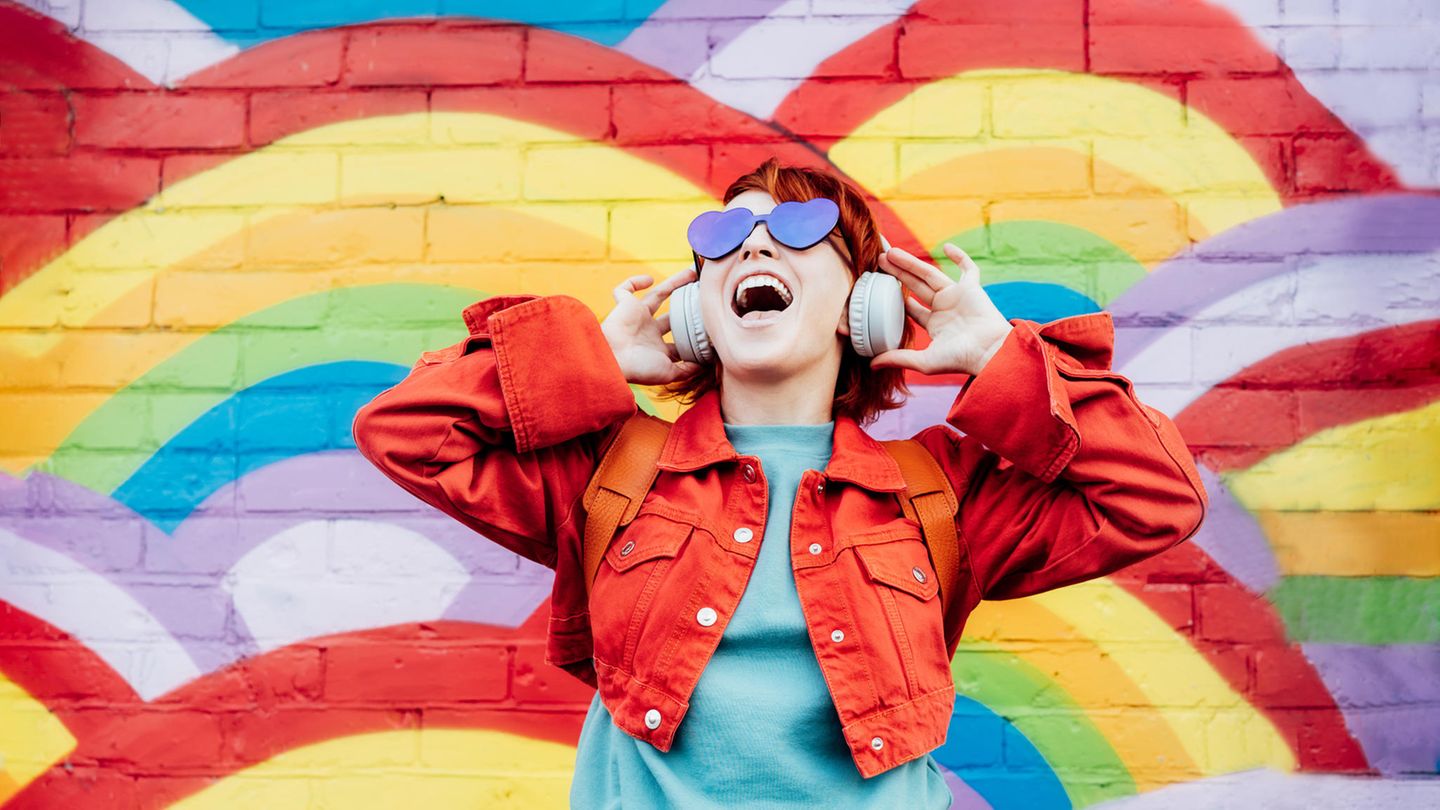People who have these skills radiate an irresistible positivity to others.
What distinguishes the optimistic from the pessimistic person? One would instinctively say: one person sees the glass as half full, the other as half empty. But what does that actually mean? Why is one rated positively and the other negatively? And what should actually be “positive” and what should be “negative”, who decides that?
Before we go too deep: What we want to say is that “positive” people don’t have to walk around the world smiling happily and compulsively finding something good out of everything, no matter how terrible. Such an approach to the world very quickly runs into “toxic positivity”, i.e. the desire to suppress or ignore everything supposedly negative. Neither are “negative” people the grouches at every party or just slurp and groan through their existence, which has no meaning in the big wide universe.
Instead, we’ve collected some personality traits that really separate one type of person from another – without toxic positivity or life pain.
Positive people have the ability to think spontaneously
Anyone who goes through life with optimism is quick on their feet – of course only meant in a figurative sense. They are not stuck in their thoughts, plans, or ideas about the world. When something bad happens, don’t think, “I knew it, I can never have anything nice!” and lie down on the pavement sulking, but they change their minds and adapt to the situation. Your favorite bar is unexpectedly closed? Too bad, but there are about ten other places within a kilometer radius that you can visit with your best friends!
Of course, that doesn’t mean that these people can put up with every setback in a matter of seconds: a person in a positive mood can and must get angry and sad about things – they just manage to pull themselves together faster than others and look ahead. There is always more than one path, more than one perspective, and a positive person knows that.
Those who are positive are mindful of themselves and the world
The world is going down the drain: Politically, there is far more than one hot spot on our planet, conflicts between countries only seem to intensify, our beautiful earth burns and groans from the burdens we humans place on it – there are more than a reason to walk through life with concern. Even optimistic people realize that the world is anything but good in many respects. But that’s not all they see. They also see the daily wonders of nature, the touching gestures of fellow human beings, they feel love for the big and small things that make up our lives – and they don’t do it because they feel they have to, because mindfulness is so trendy right now.
They do it because it’s a natural part of themselves. We recognize it by the way they walk through the forest, gazing at the rustling leaves above them and the crackling ground below, taking a deep breath, closing their eyes and listening. We see them in front of buildings whose aesthetics they admire, we see the magical smiles they give to the seller… These people are not afraid to show their love to anyone.
You are open and vulnerable
“We love to see the unvarnished truth and openness in other people, but we’re afraid to let it be seen in us,” writes author Brene Brown in her book, Daring Greatly: How the Courage to Be Vulnerable Transforms the Way We Live, Love, Parent, and Lead”. Why do we appreciate the openness of others and make it so difficult for ourselves to be vulnerable? Researchers at the University of Mannheim examined Brown’s theory in a study and called vulnerability a “beautiful fiasco” because it comes with great risks as well as great rewards.
Because if we are open, we risk our reputation, our relationships, maybe even our job. But openness and vulnerability are the only ways to show others who you really are and form deep, honest relationships. It’s such a wonderful feeling to be accepted, accepted and even loved for who you are – and positive people know that. They believe that the risk of being rejected, laughed at, and humiliated is always trumped by the chance for genuine relationships, including with oneself. And so they are a role model for many of us.
People who are positive shine on everyone around them, are an inspiration and wonderful friends, partners and colleagues. Their confidence can sustain us in moments of uncertainty and fear, offering a different perspective just as legitimate—and perhaps healthier—than ours. A human is not positive or negative: What defines him is his behavior, his attitude towards things and the world.
This also means that nobody is born as a positive or negative person. We are shaped by our life, our fellow human beings, our experiences. And that in turn also means that each of us has the chance to let a little more light into our own lives.
Sources used: hackspirit.com, greatergood.berkeley.edu, psycnet.apa.org
